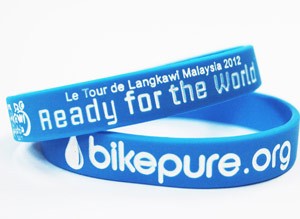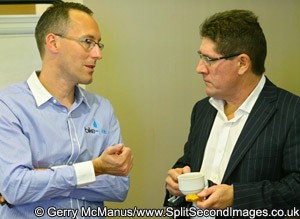Anti-doping organisation unhappy with thoughts that Armstrong might get a reduction in sanction
 These are crucial times in the battle against doping in cycling, with Lance Armstrong’s confession to Oprah Winfrey illustrating how deep the deception went, and possibly reflecting a shielding of the sport’s biggest name by those who were supposed to protect the sport.
These are crucial times in the battle against doping in cycling, with Lance Armstrong’s confession to Oprah Winfrey illustrating how deep the deception went, and possibly reflecting a shielding of the sport’s biggest name by those who were supposed to protect the sport.
It’s also a time when the Independent Commission supposed to be objectively investigating the UCI has hinted at frustration that the same governing body might be making matters tough for witnesses through the refusal of an amnesty.
That refusal to allow a limited Truth and Reconciliation process as part of the commission’s investigation has led to USADA, WADA and the Change Cycling Now group walking away from that enquiry.
The Bike Pure organisation is a fan-driven movement to try to push for reform of the sport and a better future. Late last year co-founder Andy Layhe attended the Change Cycling Now summit in London and is part of that group. He speaks frankly about a range of matters in the interview below, including his reservations about how Armstrong might be perceived after the Oprah interview.
“Our fear as an organisation is that Lance Armstrong will now be placed on a pedestal for being honest,” he told VeloNation. “This could send a very negative message to other riders and young aspiring athletes that ‘it’s ok to dope’. Athlete’s who opt to flout the rules must be punished with stronger sanctions and heavier financial penalties, along with those who encourage and administer illegal products.”
Read on for Layhe’s thoughts on the current situation in anti-doping, as well as his reasoning for a complete change in leadership in the UCI.
VeloNation: After years of denying, Lance Armstrong’s is due to confess to doping on the Oprah programme. Do you believe it will be a genuine act of contrition?
Andy Layhe: Armstrong’s comments will come as a bitter pill to the many who have worshipped him through his career. It was only a matter of time before he was pressured to speak out. Whether people believe him or not, it’s their own decision. Let’s be honest, he has been forced to publicly confess, and if not for the solid groundwork by USADA and Travis Tygart to release the Reasoned Decision document, people would still be worshiping Armstrong as a hero.
After vehemently denying he used drugs for his whole career and to now state he did, it’s all a little late.
Our fear as an organisation is that Lance Armstrong will now be placed on a pedestal for being honest. This could send a very negative message to other riders and young aspiring athletes that ‘it’s ok to dope’. Athlete’s who opt to flout the rules must be punished with stronger sanctions and heavier financial penalties, along with those who encourage and administer illegal products. Let us not forget that Armstrong not only took illegal drugs but also encouraged, pressured and administered them to team mates.
VN: What does this mean for the fight against doping?
AL: We have entered an era where the word of an athlete no longer can be believable. Armstrong vehemently denied he used drugs his entire career when in fact he did. With the implementation of improved science we can hopefully see the emergence of new methods of detection, either by the analysis of riders’ power outputs and speeds, or more advanced drug detection and retrospective testing where riders samples are stored for longer periods.
There will surely be new methods of detection as time goes by, whether that lies in improved science or more closely monitoring of athletes. Athletes who now want to win the Tour de France should be thinking of new ways in which they can make the public believe in them, ensuring that their performances are 100% clean.
 VN: What’s your response to the reported possibility that Armstrong might testify against the UCI and others?
VN: What’s your response to the reported possibility that Armstrong might testify against the UCI and others?
AL: The only positive we can see coming from this new Armstrong chapter is the UCI being implicated in the alleged cover-ups that have taken place. Doping is one thing but corruption is another evil we see becoming more commonplace in sport. The UCI could do far more on an anti-doping level and they have been fully aware of the problems that have lurked in the sport for many years.
Even as part of our position on the panel of Change Cycling Now, Bike Pure propose a complete overhaul of the UCI and the standing down of Pat McQuaid and Hein Verbruggen, with the formation of a world governing body that all cyclists globally can be proud of. The failures of the current management of the UCI are seen by us as part of the failings of the sport and part of the reason for the failure to apprehend Lance Armstrong’s prolific and extended use of performance enhancing drugs in the most intricate fraud in the history of sport.
We must ensure the consequences of doping outweigh the benefits in order to see change in the psyche of athletes who decide to take the doping route. Whether that lies in longer sanctions, more stringent vetting of team staff, doctors and managers or greater financial penalties for riders remains to be seen.
VN: WADA told us this week that there could be scope to reduce Armstrong’s ban below eight years, despite the WADA Code’s guidelines on this matter. It said it would be done if he cooperated fully and provided key evidence. How do you feel about that prospect?
AL: It’s a position we have difficulty with. It is important to have strong sanctions in place to deter riders from doping. A life ban is something that should be looked at with a minimum of 8 years. If Armstrong is reported to be so willing to return to the sport then he should have thought about the ramifications when he decided to cheat. For one of the most rampant liars and cheaters in history to be seen competing again will make the stomachs churn of many people involved in sport, most notably the anti-doping campaigners and those athletes who have opted to ride clean their whole careers with very little financial reward.
If Armstrong returns to racing then you might as well let every other banned rider be allowed to pin a number on their backs.
Take the Italian Federation’s recent decision to lift its ban on former doping riders from competing in national colours – there have to be stringent and consistent sanctions set in place that offer strong deterrents to riders. What’s the point of anti-doping if rules like these are introduced and then lifted at the drop of a hat?
We feel the way the Armstrong case is handled will prove to be a benchmark in the way anti-doping is viewed throughout all sports.
VN: WADA, USADA and Change Cycling Now walked away from the Independent Commission in protest at the UCI’s refusal to allow an amnesty to those who could give evidence. Bike Pure is part of Change Cycling Now – can you explain your stance?
AL: The terms of reference within the UCIIC are unacceptable, specifically in the truth and reconciliation proposal. With the UCI having a veto on the TOR undermines the very relevance of it being independent. Until it is seen as a totally independent body we shall not endorse such a commission.
For WADA and USADA to both express their dissatisfaction only reiterates the problems the majority have with the word ‘independent’ commission. If the Commission is to have the power and jurisdiction it requires then there should be no interference from the UCI. These are also reservations we covered as part of the Change Cycling Now summit in London last December.